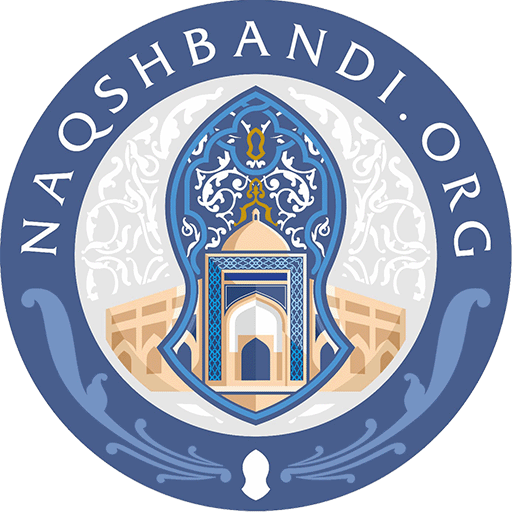Dhul-Hijjah
DHUL-HIJJAH: A SACRED MONTH
Imam Ghazali said in Ihya`Ulum al-Din:
“Fasting is definitely desirable in certain meritorious days, some of them being found in every year, others in every month, and others in every week. Those that are found in every year after the days of Ramadan are:
- the Day of `Arafat [= 9th of Dhul-Hijjah]
- the Day of `Ashura’ [= 10th of Muharram]
- the first Ten Days of Dhul-Hijjah
- the first ten days of Muharram
And all the sacred months are preferred for fasting… and they are:
Dhul-Qi`da, Dhul-Hijjah, Muharram, and Rajab.”
First Ten Days & Nights of Dhul-Hijjah
`Abd Allah ibn Mas`ud said: The Prophet ﷺ said: “There are no days in the year in which deeds are more meritorious than in the Ten Days [i.e. the first ten days of Dhu al-Hijjah].” Someone asked: “Not even Jihad in the path of Allah?” He replied: “Not even Jihad in the path of Allah.” Haythami said: “Tabarani narrated it in al-Mu`jam al-kabir and the narrators in its chain of transmission are all those of sound (sahih) narrations.
The nights are included in the mention of the days. Allah swore an oath by them when He said: “By the Dawn! By Ten Nights!” (89:1-2) and the authors of Tafsir al-Jalalayn said: “They are the first ten nights of Dhul-Hijjah.”
Fasting on Yawmu `Arafah
Abu Hafsah (r) reported that the Prophet (s) said:
“Fasting on the Day of `Arafah absolves the sins for two years: the previous year and the coming year, and fasting on `Ashura, (the tenth day of Muharram) atones for the sins of previous years.”
In another saying the Prophet’s wife Hafsah, (r), said:
“Four things the Prophet of Allah (s) never neglected: Observing fast on the day of `Ashura, `Arafat, three days every month, and offering Fajr sunnah prayers early in the morning.”
 Du`a (Supplication) on the Day of Arafah
Du`a (Supplication) on the Day of Arafah
MAWLANA SHAYKH HISHAM KABBANI
Du`a at Arafah after Khatm al-Khawajagan, Hajj 2011.]
Any gathering here, in this area particularly, is equal to 100,000 gatherings for the sake of Allah (ﷻ) anywhere else. This dhikr is equal to 100,000 gatherings of dhikr. The dhikr we made at Ka`bah is also equal to 100,000. Inshā-Allah, all those who came with us from anywhere around the world under Mawlana Shaykh Nazim’s name, and those who are not here, are dressed with the blessings of Hajj al-Akbar. The Prophet (ﷺ) prayed Zhuhr and `Asr combined in Masjid Namirah, which we just did earlier, and then after that he would come here and make his du`ā.
Offering a Sacrifice (Qurban)
Conduct of Hajj in Naqshbandi Way 
`Eid al-Adha (Feast of Sacrifice)
The `Eid prayer is a Sunnah mu’akkada or confirmed Sunnah and is recommended to be prayed in congregation. It is wajib (obligatory) in the Hanafi madhhab and therefore required of every person who is required to perform Jum`a, i.e. healthy male residents of the region in which it is performed.
It is a Sunnah mu’akkada and, in the Hanafi madhhab, a wajib, for every adult Muslim man and woman to sacrifice at least one shat — a sheep or a goat — for `Eid al-Adha. This may be done any time after the prayer on the first day of `Eid until sunset on the last of the two days following the first day. One may have someone else perform the sacrifice on his behalf, whether in his presence or in absentia.
It is recommended not to eat anything on the day of `Eid al-Adha until one perform the Prayer.
It is recommended to perform ghusl (major ablution) before the prayer, any time after Fajr even if one does not attend the prayer.
It is recommended for men to dress their best and wear perfume. It is Sunnah to come to the mosque early and on foot, and to return home by a different route. It is preferable for a `Eid Congregation to pray outdoors.
The Black Stone: A Blessing from the Hereafter
Shaykh Muhammad Hisham Kabbani
Allah ‘s right over human beings is that they make hajj to His Holy House at Mecca. “Pilgrimage to the House is an obligation on people towards Allah for one who is able to find a way to do it.” [3: 97]
Here Allah swt emphasizes that it is His right–an essential duty on people–to make the pilgrimage for His Sake, stressing its importance and making it the fifth pillar of Islam… [read the remainder of the article]
Come to Allah through the Prophet (s)
Shaykh Muhammad Hisham Kabbani
Allah made it a condition, as for sure everyone is an oppressor to himself and that’s why He said, law annahum idh zhalamoo anfusahum, He wants to give Ummat an-Nabi (s) a way out, and He said, jaa`ooka, “They come to you, yaa Muhammad.” Yaa Sayyidee, yaa Rasoolullah (s), we are calling you from here! We are oppressors to ourselves, is there any other door to come to? Allah made that door to come to Prophet (s), and when He said, jaa’ooka, in the present tense… [read the remainder of the article]
The Day of Arafat: Sacrifice of Prophets
Shaykh Muhammad Hisham Kabbani
O Muslims! Believers. In two days time it is the Eid of al-Adha. It is the day that Allah swt ordered Sayyidina Ibrahim (as) to slaughter and to give as a sacrifice his son, to Allah swt. And that is an important day that Ibrahim (as) was been tested and it was on Arafat day, one day before Eid. [read the remainder of the article]
